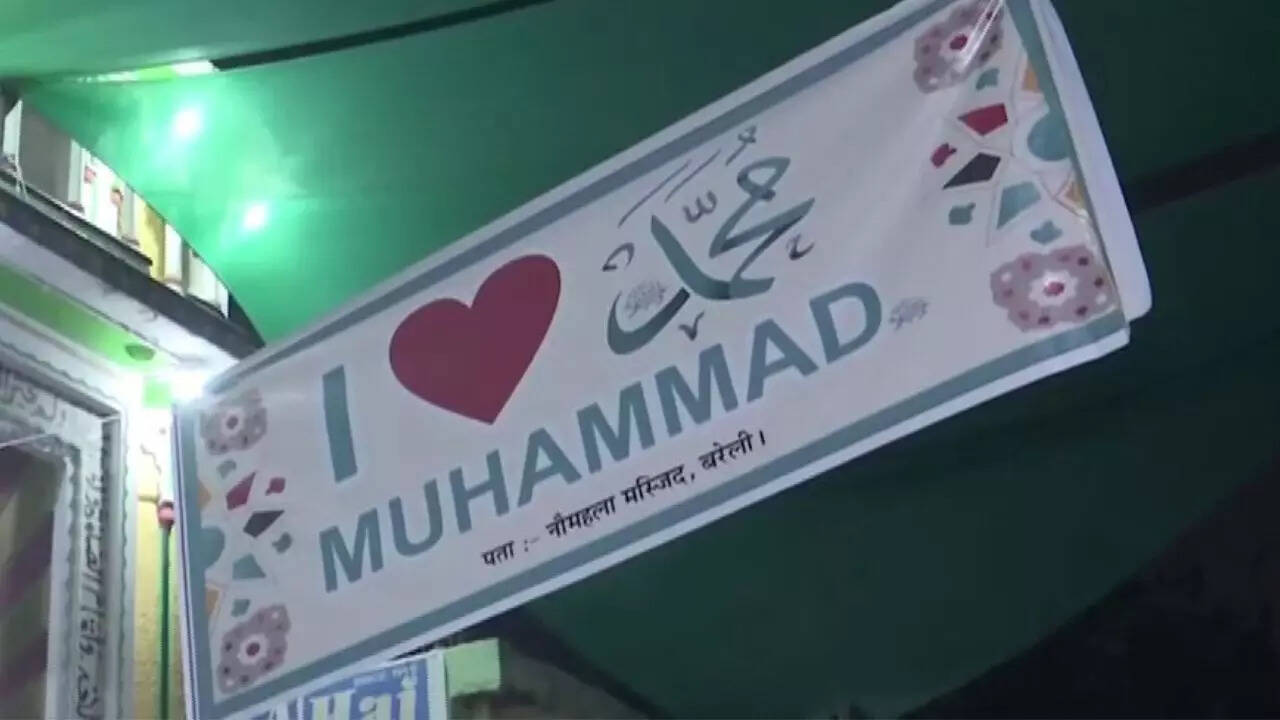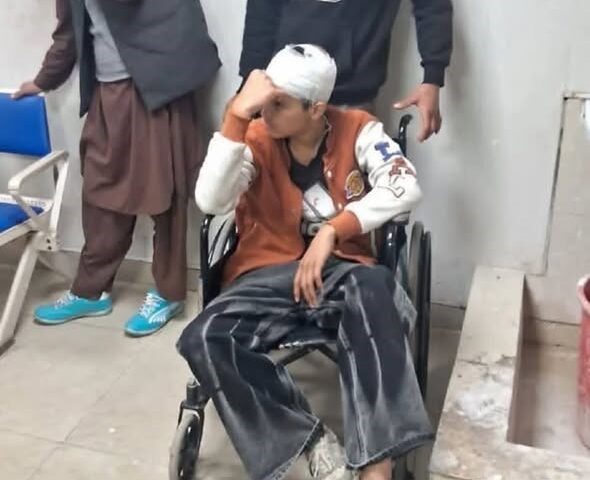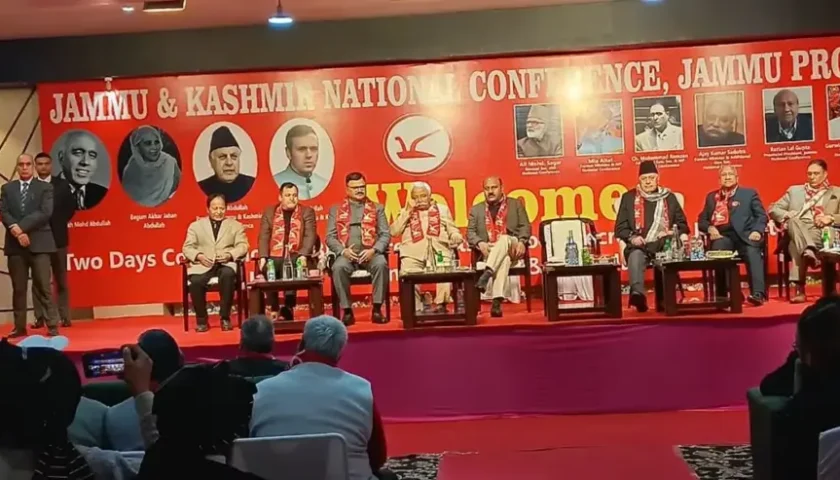‘I Love Muhammad’ Row: JK BJP Leader Threatens Resignation Over UP CM’s Remarks — And Reactions Pour In
By: Javid Amin | 03 October 2025
When Faith Meets Fear
Srinagar, October 3, 2025 — In a political landscape often defined by loyalty and conformity, Dr. Jahanzaib Sirwal, a young and outspoken leader of the Bharatiya Janata Party (BJP) from Jammu & Kashmir, has broken ranks. His bold statement condemning Uttar Pradesh Chief Minister Yogi Adityanath’s recent comments and the police crackdown on Muslims displaying “I Love Muhammad” banners during Eid-e-Milad processions has sent ripples through India’s political corridors.
Sirwal, a doctor by profession and one of the few Muslim faces within the BJP’s J&K unit, did what few in his position dare — he spoke out against his own party’s government.
“If these actions reflect the party’s stance, I humbly accept expulsion, for my Iman will always stand above all else,” he declared in a statement that has since gone viral.
The issue at hand — a religious expression turned criminal offence — has reignited the debate around freedom of faith, constitutional rights, and the growing unease among minorities within India’s political mainstream.
The Trigger: ‘I Love Muhammad’ and the UP Crackdown
The controversy began in Kanpur and Bareilly, where Eid-e-Milad-un-Nabi processions were marked by green flags, devotional chants, and placards reading “I Love Muhammad.”
While these processions have been an annual event for decades, this year’s celebrations were marred by violence. On September 26, 2025, tensions flared in Bareilly after local police attempted to remove religious banners. Clashes followed, leading to internet suspension across several districts and the arrest of more than 68 people, including a prominent cleric.
In the aftermath, UP CM Yogi Adityanath made a controversial statement:
“We have taught trouble-makers such a lesson that even their future generations will remember. Denting-painting must be done for habitual offenders.”
His remarks were widely broadcast across news channels and amplified on social media, prompting outrage among Muslim communities and civil rights activists.
For many, it was not merely an issue of law and order — it was about the criminalization of faith-based expression and the deepening perception that Muslims are being selectively targeted.
Sirwal’s Response: “Faith Is Not a Crime”
Dr. Jahanzaib Sirwal’s statement, issued from Srinagar, came as a rare voice of dissent from within the BJP’s Muslim cadre. His words cut through the noise of party discipline and political calculation.
He said:
“The situation in Uttar Pradesh goes against Prime Minister Narendra Modi’s vision of Sabka Saath, Sabka Vikas, Sabka Vishwas. It betrays this ethos through baseless legal actions, heavy-handed crackdowns, and divisive threats.”
Sirwal emphasized that Article 25 of the Indian Constitution guarantees the right to freely profess, practice, and propagate religion — a right that, he said, cannot be trampled by administrative overreach or communal rhetoric.
“What was a simple, heartfelt act of faith has been met with FIRs, detentions, and inflammatory rhetoric. Such actions are an affront to the spirit of India — the India that promises equality before the law,” he added.
For many, Sirwal’s stand echoes the same moral courage seen in past moments of intra-party dissent — moments that define the difference between politics and principle.
The Constitutional Lens: Article 25 and Freedom of Religion
To understand the weight of Sirwal’s critique, one must revisit Article 25 of the Constitution of India. It enshrines the freedom of conscience and the right to freely profess, practice, and propagate religion, subject only to public order, morality, and health.
Legal experts argue that expressing devotion to a religious figure — in this case, Prophet Muhammad (PBUH) — through peaceful means does not violate any public order clause.
Former Supreme Court advocate Naseer Qureshi told The Daily Impact:
“Displaying ‘I Love Muhammad’ banners in a peaceful procession cannot be criminalized unless it incites violence. The Constitution does not allow the State to police sentiments or dictate how love for a prophet should be expressed.”
Yet, in recent years, there has been a growing trend of religious policing, especially in BJP-ruled states, where even symbolic acts have been interpreted through a political lens.
Sirwal’s challenge, therefore, is not merely political — it’s constitutional.
Political Fallout: Unease Inside the BJP
Sirwal’s statement triggered intense debate within BJP’s J&K unit. While some leaders privately expressed admiration for his courage, others cautioned that such remarks could be construed as indiscipline.
A senior J&K BJP functionary, speaking anonymously, said:
“Dr. Sirwal’s intentions may be noble, but airing such criticism publicly creates unnecessary tension. There are internal mechanisms for feedback.”
However, several Muslim BJP workers across northern India expressed solidarity. One Lucknow-based minority cell member said,
“He spoke what many of us feel but cannot say. The ground reality is harsh — even within the party, there’s fear of being misunderstood or marginalized.”
Interestingly, national-level BJP leaders have maintained silence so far, perhaps wary of giving the controversy more oxygen.
Voices from the Ground: Two Indias, One Faith
On the ground, reactions have been divided. In Bareilly, local residents told reporters that the police crackdown was disproportionate.
Mohammad Arif, a shopkeeper, said:
“We have celebrated Eid-e-Milad this way since my grandfather’s time. Suddenly, it’s a law-and-order issue? Loving the Prophet is not a crime.”
In contrast, supporters of Yogi Adityanath defended the police action. A local BJP youth leader said:
“No one stopped people from celebrating. But when processions block roads or chant provocative slogans, the administration has to act.”
This divide between faith and law, between expression and control, encapsulates the heart of India’s contemporary tension — the shrinking space for cultural and religious coexistence.
The Uttar Pradesh Context: From Faith to Faultline
Uttar Pradesh, India’s most populous state, has long been a flashpoint of communal politics. The Adityanath government’s firm stance on law and order has often been celebrated by its supporters as “decisive governance” but criticized by others as majoritarian authoritarianism.
The “I Love Muhammad” controversy is the latest in a string of incidents — from the bulldozer demolitions of Muslim homes after protests, to the ban on loudspeakers at mosques, and restrictions on religious gatherings.
Civil rights activist Nida Khan, who has faced police action in the past, told this magazine:
“The message is clear — Muslim visibility itself has become suspicious. When you celebrate your Prophet, you are accused of provocation. When you demand justice, you are branded anti-national.”
Sirwal’s intervention, therefore, is not just about UP; it’s about the soul of the BJP’s national identity — can it still represent all Indians, or has it become a party of cultural singularity?
Ground Reactions in Kashmir and Beyond
In Jammu & Kashmir, where political sensitivities around religion and identity are profound, Sirwal’s statement has resonated deeply.
Political analyst Zafar Meraj observed:
“Sirwal has positioned himself as a conscience keeper within the BJP. For many in J&K, his words echo the broader sentiment of alienation under the current political climate.”
The People’s Democratic Party (PDP) and National Conference (NC) leaders, though ideological opponents, have both praised the statement as “a rare act of truth-telling.”
Social media in Kashmir and Lucknow alike buzzed with hashtags like #FaithAbovePolitics and #ILoveMuhammad, as citizens debated whether Sirwal’s words represented courage or career suicide.
Between Faith and Power: The Personal Cost
For Dr. Jahanzaib Sirwal, this moment may define his political future. His stance has placed him at the intersection of faith, morality, and power — a difficult place for any politician in modern India.
He insists that his intent is not rebellion, but reflection:
“My words are not against the BJP, but against actions that betray the values we claim to uphold. If we lose compassion, we lose the moral compass that guides our politics.”
Political observers note that Sirwal’s dissent mirrors a broader unease among the BJP’s moderate and minority voices — a quiet discomfort with the party’s increasing ideological rigidity.
Voices of Support: Civil Society and Youth
Sirwal’s statement found backing from academics, clerics, and student groups who viewed it as a reaffirmation of constitutional morality.
Dr. Rukhsana Khan, a sociologist at Kashmir University, said:
“In times when dissent is demonized, this kind of principled disagreement is vital for democracy. It reminds us that conscience still exists within the system.”
In Aligarh and Hyderabad, youth-led groups held online discussions lauding Sirwal for “speaking truth to power.” Several Muslim professionals shared his quotes on social media, calling him “the voice of balance in a time of noise.”
BJP’s Dilemma: Between Uniformity and Inclusivity
The BJP now faces a strategic dilemma. On one hand, it cannot afford to appear intolerant to internal criticism; on the other, it risks alienating its hardline support base if it softens its stance.
Party insiders hint that the leadership may attempt a “damage control” narrative — framing Sirwal’s words as a “personal opinion” rather than a rebellion.
However, as one senior Delhi-based political consultant put it:
“When a Muslim BJP leader cites the Constitution and warns of moral decay, it’s not rebellion — it’s a reckoning.”
Larger Implications: The Battle for India’s Soul
Sirwal’s statement underscores a deeper, nationwide question — can India preserve its plural identity amidst polarized politics?
The phrase “Sabka Saath, Sabka Vikas, Sabka Vishwas” was conceived as a vision of inclusivity. But as incidents like these pile up, that slogan risks losing its meaning unless backed by action.
For millions of Indians, Sirwal’s stand rekindles the belief that political conscience still exists — that not every voice within the ruling establishment has surrendered to silence.
Editorial Insight: The Courage to Disagree
In the long arc of Indian politics, dissent within ruling parties has often signaled democratic health. From Vajpayee’s quiet disagreements with the RSS, to Jaswant Singh’s principled criticism of party policy — the BJP has a legacy of intellectual debate.
Dr. Jahanzaib Sirwal’s dissent revives that spirit. Whether his words bring reform or retribution remains to be seen. But what’s certain is this — his statement will be remembered as one of the rare moral moments in Indian politics, where faith and the Constitution found a common voice.
Conclusion: A Bridge Between Faith and Nation
As India navigates its identity crisis between nationalism and pluralism, Dr. Sirwal’s words offer both a warning and a hope.
“Let us build bridges, not barriers, for our nation’s strength lies in its diversity,” he said — a message that transcends party lines.
Whether the BJP heeds that call or silences it will determine not just Sirwal’s political fate, but the moral credibility of a party that claims to represent “every Indian.”




